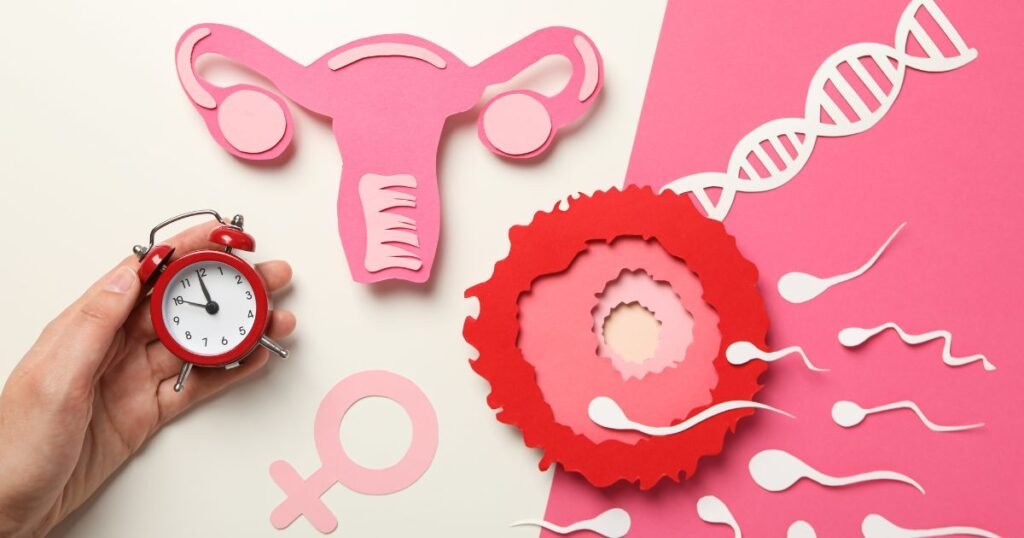Last Updated on 18 February 2024
UPDATED 19 FEBRUARY 2024
Welcome to pregnancy week by week 2. For expectant parents, emotions may range from excitement to anticipation as they eagerly await pregnancy confirmation in the coming weeks. It is a time of hope, wonder, and the beginning of a profound bond with the tiny life that has just begun.
While there may not be any physical symptoms of pregnancy at this early stage, it is essential to continue taking prenatal vitamins, maintaining a healthy lifestyle, and avoiding harmful substances to support optimal fetal development. Although the journey has just begun, each passing week brings new milestones and changes. Stay tuned as we explore the incredible journey from conception to birth, one week at a time.
Fetal Development Begins
At two weeks pregnant, conception has just occurred, marking the official start of your pregnancy journey. Despite not yet being able to confirm pregnancy through a test, this week is crucial as it sets the stage for the miraculous process of fetal development. During this week, the sperm fertilizes the egg, forming a zygote. This newly formed zygote begins its journey down the fallopian tube towards the uterus, where it will eventually implant into the uterine lining. While the embryo is tiny and barely visible to the naked eye, it carries all the genetic information necessary to develop into a healthy baby.
What To Expect in Pregnancy Week 2
During pregnancy week 2, your body is still in the early stages of pregnancy, and you may not experience many noticeable symptoms. However, some women may start to notice subtle changes, such as sore breasts or mood swings, which could be early signs of pregnancy. These symptoms are caused by the hormonal changes occurring within your body as it prepares for the possibility of pregnancy. It is important to remember that everyone’s experience is unique, and not everyone will have the same symptoms or level of discomfort during this early stage.
Although the embryo has not yet formed, the groundwork for pregnancy is being laid. It is still too early to confirm your pregnancy, as the levels of pregnancy hormones may not be detectable at this stage. However, scheduling an appointment with your healthcare provider can provide more certainty and guidance for your pregnancy journey. Your healthcare provider can discuss any questions or concerns you may have, as well as offer advice on prenatal care and lifestyle choices that promote a healthy pregnancy.
Here is what is happening in a woman’s body during pregnancy week 2:
- Fertilization: After ovulation, if sperm meets the egg in the fallopian tube, fertilization occurs. The fertilized egg, now called a zygote, begins to undergo rapid cell division.
- Travel to the Uterus: The zygote travels down the fallopian tube toward the uterus, where it will eventually implant into the thickened uterine lining.
- Implantation: Implantation typically occurs around week 3 or 4 of pregnancy. During implantation, the zygote attaches to the uterine lining, where it will continue to grow and develop.
- Hormonal Changes: After conception, hormonal changes occur in the body to support the developing pregnancy. Hormones such as human chorionic gonadotropin (hCG) begin to rise, although they may not be detectable yet on a pregnancy test.
- Preparation for Pregnancy: Even though you are not technically pregnant yet, it is essential to continue taking care of your health by eating a balanced diet, staying hydrated, avoiding harmful substances, and taking prenatal vitamins with folic acid.
While week 2 may not bring noticeable physical changes, it is an exciting time as you potentially begin the journey toward pregnancy. If you are actively trying to conceive, this is an excellent time to track your ovulation and engage in healthy habits to support fertility. If conception doesn’t occur this cycle, don’t lose hope; many couples conceive within a few months of trying.
Checklist For Pregnancy Week by Week 2
Here are 30 things you can do and prepare for after ovulation if you’re actively trying to conceive:
- Track Ovulation: Confirm ovulation through methods like basal body temperature charting, ovulation predictor kits, or tracking cervical mucus changes.
- Time Intercourse: Have intercourse in the days leading up to ovulation and on the day of ovulation to maximize the chances of conception.
- Stay Relaxed: Practice stress-relieving activities like meditation, yoga, or deep breathing exercises to reduce stress levels, which can affect fertility.
- Maintain a Healthy Diet: Eat a balanced diet rich in fruits, vegetables, whole grains, lean proteins, and healthy fats to support overall health and fertility.
- Take Prenatal Vitamins: Start taking prenatal vitamins containing folic acid to support healthy fetal development in case conception occurs.
- Stay Hydrated: Drink plenty of water to stay hydrated, which is important for reproductive health.
- Avoid Harmful Substances: Avoid smoking, excessive alcohol intake, and illicit drugs, as they can negatively impact fertility.
- Consider Your Weight: Aim for a healthy weight, as being underweight or overweight can affect fertility.
- Monitor Symptoms: Pay attention to potential early pregnancy symptoms such as implantation bleeding, breast tenderness, fatigue, or changes in cervical mucus.
- Communicate with Your Partner: Keep open lines of communication with your partner about your fertility journey, plans, and emotions.
- Stay Active: Engage in regular moderate exercise, such as walking, swimming, or cycling, to support overall health and fertility.
- Avoid Hot Tubs/Saunas: Exposure to extreme heat can reduce fertility, so avoid hot tubs and saunas.
- Limit Caffeine Intake: Limit caffeine intake to moderate levels, as excessive caffeine consumption may impair fertility.
- Get Plenty of Sleep: Aim for 7-9 hours of quality sleep per night to support reproductive health and overall well-being.
- Plan for Preconception Checkup: Consider scheduling a preconception checkup with your healthcare provider to discuss any concerns and ensure you’re in optimal health for pregnancy.
- Review Medications: Review any medications you’re currently taking with your healthcare provider to ensure they’re safe for pregnancy.
- Discuss Family Medical History: Talk to your partner about any family medical history that may impact pregnancy or fertility.
- Consider Genetic Testing: Consider genetic testing or carrier screening to identify any potential genetic disorders that could affect your future child.
- Update Vaccinations: Ensure your vaccinations are up-to-date, including the flu vaccine and any recommended vaccines for pregnancy.
- Create a Support System: Build a support network of family and friends who can offer emotional support during your fertility journey.
- Educate Yourself: Read books, and articles, or attend classes about conception, pregnancy, and childbirth to prepare yourself for the journey ahead.
- Plan Financially: Start planning for the financial aspects of pregnancy and parenthood, including healthcare costs, maternity leave, and childcare expenses.
- Consider Maternity Leave: Research your employer’s maternity leave policies and plan accordingly.
- Discuss Parenting Styles: Have discussions with your partner about parenting styles, childcare arrangements, and other aspects of raising a child.
- Prepare Your Home: Start preparing your home for a baby by creating a nursery, baby-proofing, and stocking up on essential baby items.
- Explore Fertility Treatments: If you’ve been trying to conceive for a while without success, consider exploring fertility treatments or consulting with a fertility specialist.
- Join Support Groups: Join online forums, support groups, or fertility communities where you can connect with others who are also trying to conceive.
- Practice Patience: Understand that conception may not happen immediately, and be patient with yourself and your partner throughout the process.
- Stay Positive: Maintain a positive attitude and outlook, focusing on the possibilities and joys of parenthood.
- Enjoy Each Other’s Company: Finally, enjoy this time together with your partner and cherish the journey toward parenthood, regardless of how long it takes.









